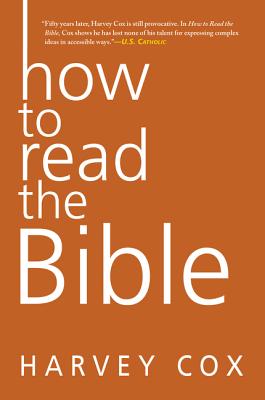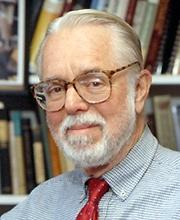

 HarperOne
HarperOne
How to Read the Bible


Key Metrics
- Harvey Cox
- HarperOne
- Paperback
- 9780062343161
- 8 X 5.2 X 0.8 inches
- 0.45 pounds
- Religion > Biblical Criticism & Interpretation - General
- English
 Secure Transaction
Secure TransactionBook Description
Renowned religion expert and Harvard Divinity School professor Harvey Cox deepens our experience of the Bible, revealing the three primary ways we read it, why each is important, and how we can integrate these approaches for a richer understanding and appreciation of key texts throughout the Old and New Testaments.
The Bible is the heart of devotional practice, a source of guidance and inspiration rich with insightful life lessons. On the other side of the spectrum, academics have studied the Bible using scientific analysis to examine its historical significance and meaning. The gap between these readings has resulted in a schism with far-reaching implications: Without historical context, ordinary people are left to interpret the Bible literally, while academic readings overlook the deeply personal connections established in church pews, choir benches, and backyard study groups.
In How To Read the Bible, Cox explores three different lenses commonly used to bring the Bible into focus:
- Literary--as narrative stories of family conflict, stirring heroism, and moral dilemmas;
- History--as classic texts with academic and theological applications;
- Activism--as a source of dialogue and engagement to be shared and applied to our lives.
By bringing these together, Cox shows the Bible in all its rich diversity and meaning and offers us a contemporary activist version that wrestles with issues of feminism, war, homosexuality, and race. The result is a living resource that is perpetually evolving as our understanding changes and deepens from generation to generation.
Author Bio
Harvey Cox is Hollis Research Professor of Divinity at Harvard, where he began teaching in 1965, both at HDS and in the Faculty of Arts and Sciences. An American Baptist minister, he was the Protestant chaplain at Temple University and the director of religious activities at Oberlin College; an ecumenical fraternal worker in Berlin; and a professor at Andover Newton Theological School.
His research and teaching interests focus on the interaction of religion, culture, and politics. Among the issues he explores are urbanization, theological developments in world Christianity, Jewish-Christian relations, and current spiritual movements in the global setting (particularly Pentecostalism).
He has been a visiting professor at Brandeis University, Seminario Bautista de Mexico, the Naropa Institute, and the University of Michigan.
He is a prolific author. His most recent books are How to Read the Bible (HarperCollins, 2015) and Lamentations and the Song of Songs: A Theological Commentary on the Bible (with Stephanie Paulsell; Westminster John Knox Press, 2012).
His Secular City, published in 1965, became an international bestseller and was selected by the University of Marburg as one of the most influential books of Protestant theology in the twentieth century. His other books include The Future of Faith; When Jesus Came to Harvard: Making Moral Decisions Today; The Feast of Fools; The Seduction of the Spirit; Religion in the Secular City; The Silencing of Leonardo Boff: Liberation Theology and the Future of World Christianity; Many Mansions: A Christian's Encounters with Other Faiths; Fire from Heaven: The Rise of Pentecostal Spirituality; The Reshaping of Religion in the Twenty-First Century; and Common Prayers: Faith, Family, and a Christian's Journey through the Jewish Year.
Education
AB, University of Pennsylvania
BD, Yale Divinity School
PhD, Harvard University
Source: Harvard Divinity School
Videos
No Videos
Community reviews
Write a ReviewNo Community reviews